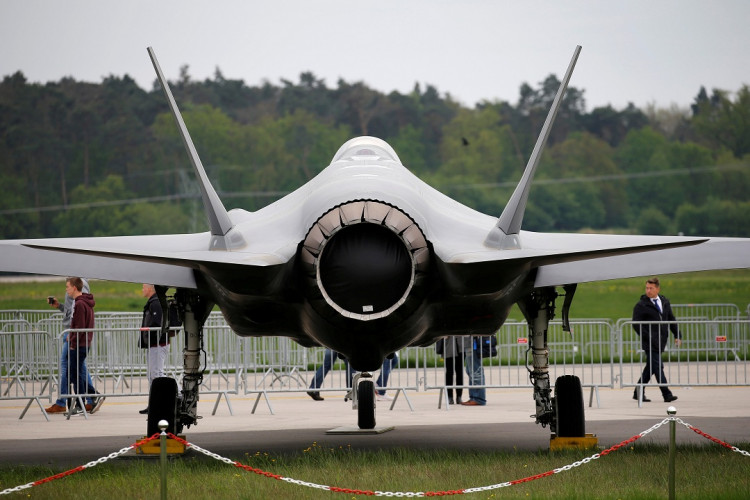In its latest earnings call for shareholders, global aerospace and advanced technologies company Lockheed Martin reported quarterly profits that beat initial analysts' forecasts.
Following the announcement of its successful attempt to get its stealth F-35 fighter jet deliveries back on track, the company raised its earnings forecast for the rest of the year.
Revenue from the sale of its fighter jets accounts for a third of Lockheed's total revenue. The company had delivered a total of 29 F-35 fighter jets for the quarter.
With its deliveries for the rest of the year now on track, the company increased its full-year profit forecast from $58.25 billion to $59.75 billion, or $21.15 per share.
The company's second-quarter total sales had grown by 8 percent to $14.43 billion, beating initial analysts' expectations of $14.21 billion. Sales from its aeronautics business also experience growth of around 4.3 percent to $5.55 billion. The company's best performer for the quarter was its missile and fire control unit, which experienced a sales growth of 15.6 percent to $2.41 billion for the quarter.
During the earnings call, Lockheed Martin revealed that it has already taken the appropriate steps to establish an alternate supplier of components for its F-35 fighter jet orders for the United States.
This was a necessary move by the company after the Pentagon announced last week that it would be removing Turkey from the country's fighter jet program.
The Pentagon cited major security concerns for its decision to remove Turkey from the program. The agency also recently announced that it would be shifting its supply for its missile defense systems to Russia.
Lockheed Martin CEO Marillyn Hewson mentioned on the post-earnings call that they already have a timeline to fully remove Turkey from the supply chain. The executive states that they should be able to completely remove Turkey from the equation by March 2020.
Turkey is one of Lockheed Martin's largest suppliers, providing the company with dozens of different components ranging from landing gears to its cockpit display. The country has also been part of the program to develop and manufacture Lockheed's advanced F-35 stealth fighter jets.
The Turkish government also plans to buy up to 100 units of the aircraft for its military. However, that plan is now being canceled following the implementation of sanctions on the country by US President Donald Trump.
Lockheed assured its shareholders that it is already in talks with other countries to buy the aircraft it had already produced for Turkey. Hewson told investors that several countries have already expressed interest in becoming alternative buyers.





